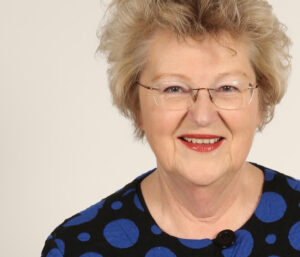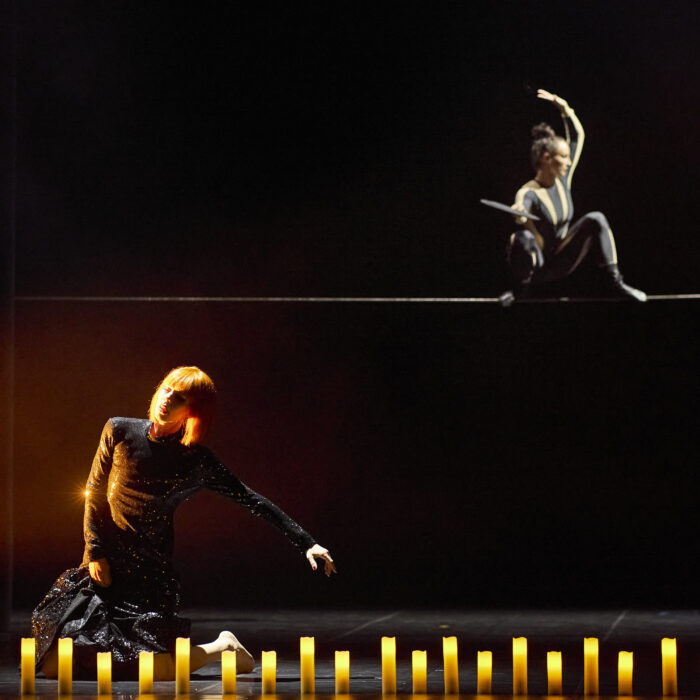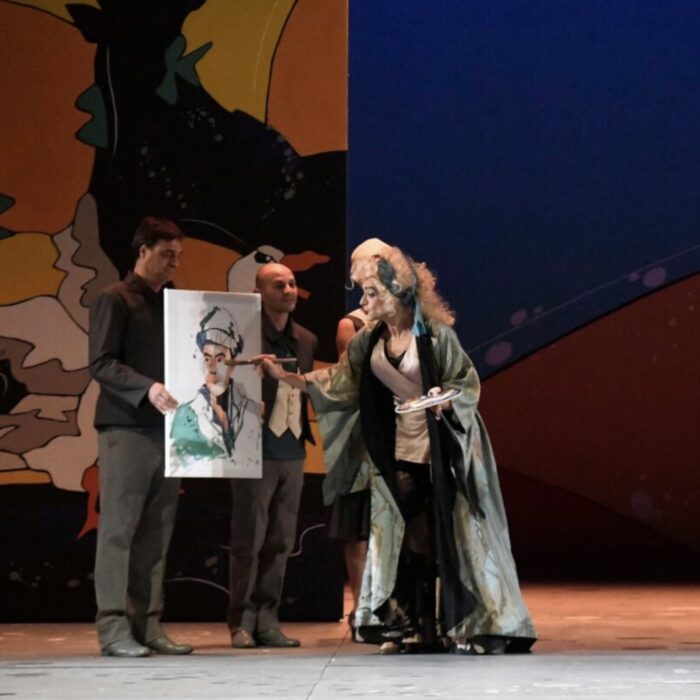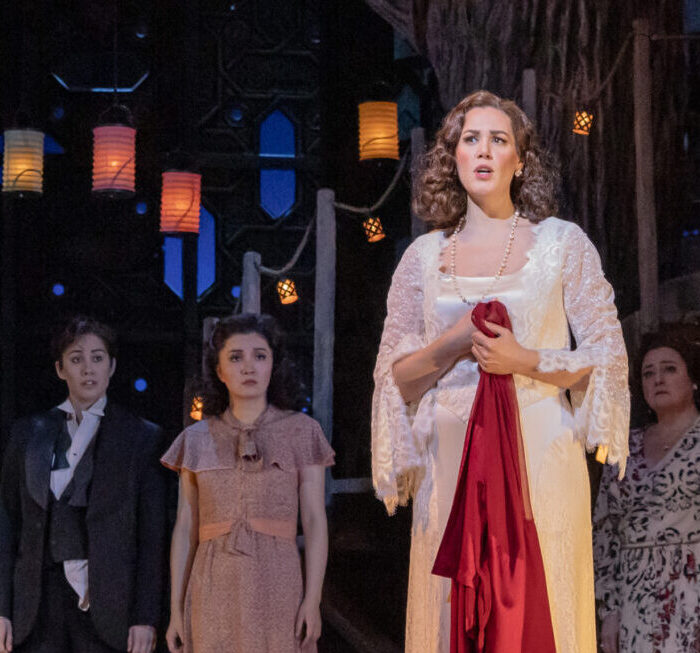
Baltic Opera Festival 2024 Review: The Flying Dutchman
By Zenaida des Aubris(Photo: Krzysztof Mystkowski)
The journey to Opera Lesna – literally translated as Forest Opera – is an experience in itself. From Gdansk by car, bike or bus, you arrive in the parking lot of the forest and have to make a a short pilgrimage to the site – yes, there is an unintended resemblance to approaching the hallowed halls of Bayreuth! In the evening, although it is the middle of summer, it is cool and those who have remembered to bring a jacket are well off.
Once you reach the site, there is a huge, temple-like structure that is open on all sides but covered by huge, permanent sails. This protects the stage and the audience from wind and weather. The stage is very wide and deep, and the pit can easily accommodate 110 musicians. What better place than here to stage “The Flying Dutchman” and “Turandot,” the two operas on the program this year?
The Flying Dutchman
The large, rusty-looking elements by Boris Kudlicka and Natalia Kitamikado dominate the stage and can be interpreted as sails, rocks or doors, depending on the location and lighting. In front of it is Daland’s ship – a round bathtub that rollicks back and forth according to the mood, the waves and the weather.
For stage director Barbara Wisniewska, Daland is already getting on in years and needs a wheelchair, but as soon as the Dutchman’s riches are on display, this suddenly becomes unnecessary. Gold always succeeds, quite simply, in enchanting and seducing. In this production, the Dutchman appears elegantly dressed in white, as if he had just been dressed by an English gentleman’s outfitter for a country outing. Costume designer Dorota Roqueplo makes sure of this. His sea companions are fairy-like figures from centuries gone by, who are always scurrying around him in a stage-filling choreography by Jacek Przybylowicz. The Dutchman’s gold treasure is a huge gold bar that only his henchmen can move with ease. Ordinary mortals like Daland’s sailors cannot move the treasure an inch. Therein lies magic.
On this evening, Tomasz Konieczny, as the Dutchman, had to be announced as indisposed and was only able to get through the first act vocally. He remained to act on stage, but Oleksandr Pushniak sang from the side stage with a similarly voluminous timbre.
Rafał Siwek embodied the greedy father who is so quick to give his daughter away. Even with a microport and the appropriate amplification, he plays a Daland who is about to retire.
His daughter Senta, on the other hand, embodied by Vida Miknevičiūtė, is a self-confident young woman who knows what she wants and communicates it with a great, musically well-placed and simply beautiful soprano. Erik, as her spurned friend and rejected protector, is also excellently cast by tenor Dominik Sutowicz. Rafał Bartmiński, with his lanky stature but with a very secure tenor timbre, makes a convincing helmsman.
The orchestra of the Baltic Opera in Gdansk, conducted by Yaroslav Shemet, played excellently in the pit. Here, too, there is a hint of acoustic amplification, but it is never intrusive or overdone.



